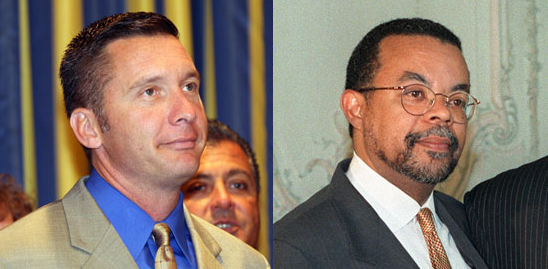 The one constant that underlies race relations in America is that the white man enslaved the black man, and neither can get over it.
The one constant that underlies race relations in America is that the white man enslaved the black man, and neither can get over it.Recently, Sgt. Crowley, a white officer with the Cambridge police, arrested a black man - a Harvard professor - in his own home. Followed a brouhaha, with claims and counter-claims.
We learned that Sgt. Crowley teaches a course on "racial profiling" at the Cambridge police academy. But for all of his fancy "sensitivity training" he could not understand the fundamental reaction a black man harbors when a white policeman enters his home, (which points up a fundamental flaw in Crowley's teachings.)
Twice, Crowley stated, "I don't understand why he wasn't glad that I was there."
One reason Sgt. Crowley "does not understand" is because Professor Gates' reaction was purely visceral - that is, it was not based on intellectual reasoning, which one might expect from a Harvard professor. Rather, it was elemental, spawned in a well so deep, it goes all the way back to the beginnings of slavery in America.
That well, apparently, does not run dry. Jim Crow replenishes it, as does the Gay Nineties - that American paradox, when more blacks were lynched during any other period of American history. Add the Civil Rights struggle - where images of police brutality against blacks - the dogs, the hoses - are seared into America's conscious.
The generation that absorbed those abuses have died away; and they will continue to die away. But the pain they suffered lives defiantly (and seemingly forever) within African-America, fed as it is by the contemporary images - fairly or unfairly - of beatings of the likes of Rodney King, and the shootings of innocents like Amadou Diallo.
There is no other relationship on Earth like the one that defines white and black America. Two powerful peoples who strengths hold us together; whose weaknesses hold us apart.